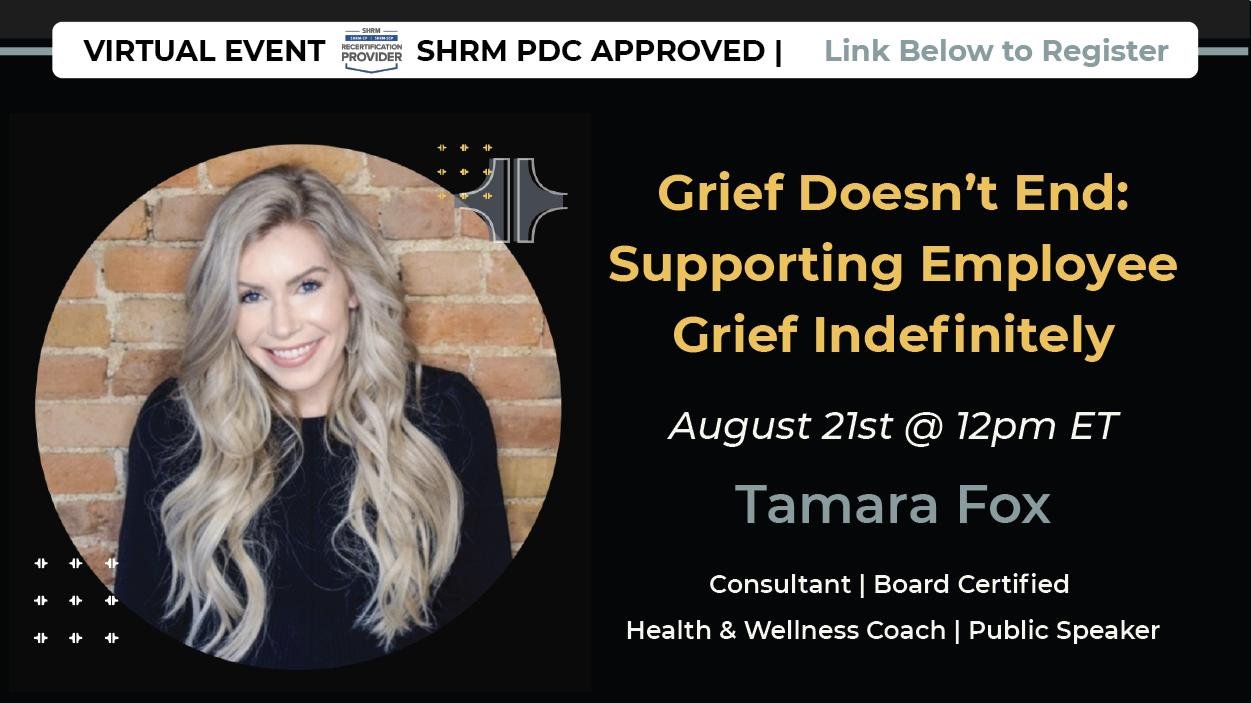

Grief Doesn’t End: Bereave Webinar Recording
Bereavement at work is about more than time off. It's about mental health support. It's about inclusion and equity. It's about defining culture. And it starts with treating grieving employees with an understanding that grief doesn't end - especially after 3-5 days.
Bereave’s CEO Justin Clifford sat down with Loeb Leadership’s Tamara Fox for the webinar, “Grief Doesn’t End: Supporting Employee Grief Indefinitely.” Watch the recording here.


Creating a Culture of Civility: Practical Strategies for Leaders
Civility—the practice of showing respect, kindness, and consideration for others—is fundamental to creating a workplace environment where employees feel valued, safe, and motivated. For leaders, promoting civility isn’t just about maintaining good manners; it's about laying the groundwork for a productive, collaborative, and innovative workplace.




Crisis Management in Professional Services: Strategies for Navigating Challenges
In the world of professional services, the ability to effectively manage crises is crucial for maintaining client trust, safeguarding the firm’s reputation, and ensuring long-term success. Effective leadership in crisis management can make the difference between a firm that merely survives and one that thrives despite the challenges.


Bridging Compliance and Emotional Intelligence: The New Frontier of Leadership
Coaching is crucial for any compliance program. It’s often said that an organization’s most valuable asset is its people, and like any asset, they should grow and appreciate over time. Leadership coaching maximizes the potential and contribution of employees. Join our experts, Natalie Loeb and David Sarnoff of Loeb Leadership as we delve into this topic with Ethics Suite.


Natalie Loeb Joins the New York State Council for SHRM
We are thrilled to announce that Natalie Loeb, Founder and Co-CEO of Loeb Leadership, has recently accepted a prestigious role on the New York State Council for the Society of Human Resources Management (SHRM).

Real Talk: From Allyship to Abandon-Ship: How Do We Stop the Cycle?
In this Real Talk discussion, we discuss the persistent cycle of broken promises and performative allyship that fails to create lasting change. The deeper question is why this cycle persists, and how today’s leaders should seek informed strategies and remain committed to genuine inclusivity, especially as newer generations enter the workforce with strong support for DE&I values. The panel proposed action items to be implemented going forward to increase inclusion under the current environment, with the goal of breaking the cycle.




Mind Matters Webinar: Aligning Actions with Advocacy
Join us as we navigate the complexities of fostering a culture where mental health isn't just discussed but actively prioritized. Learn from experts and industry leaders as we explore practical approaches, share success stories, and address challenges in implementing sustainable mental health initiatives. Together, let's move beyond lip service and truly embody the principles of mental health advocacy in our workplaces. Because when it comes to mental health, actions speak louder than words.



From Allyship to Abandon-Ship: How Do We Stop the Cycle?
Over the past few decades, many organizations have implemented diversity, equity, and inclusion (DE&I) initiatives with varying success. Following the murder of George Floyd in 2020, there was a renewed and widespread commitment to DE&I, but these efforts have largely been performative. Recent Supreme Court decisions and legislative actions have further eroded these commitments, leading to the elimination of many DE&I positions and programs. This pattern of abandoned promises is not new, reflecting a historical cycle of progress and regression in the fight for equity. To break this cycle, leaders must educate themselves, consult experts, and implement sustainable DE&I strategies despite current challenges. The future workforce demands it, and true progress depends on it.
